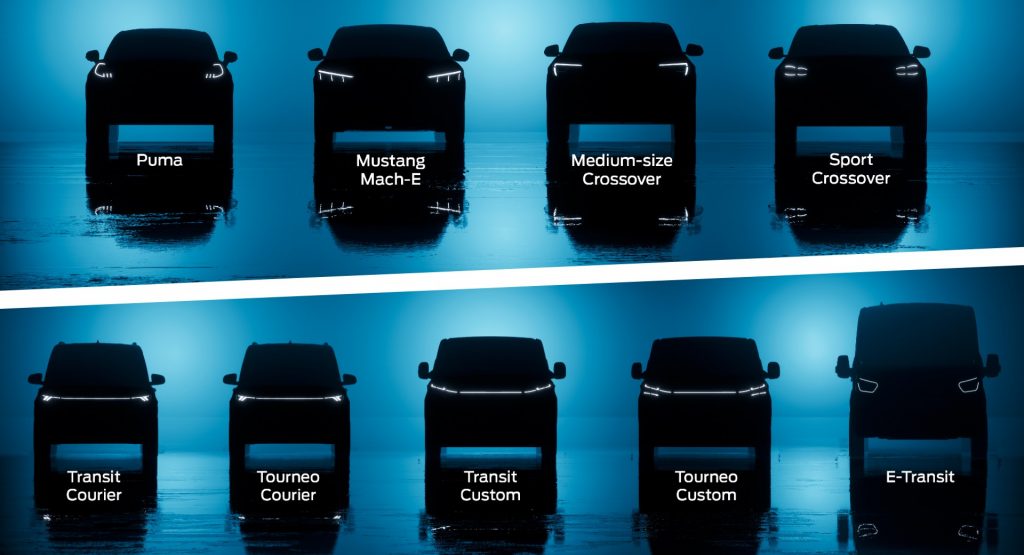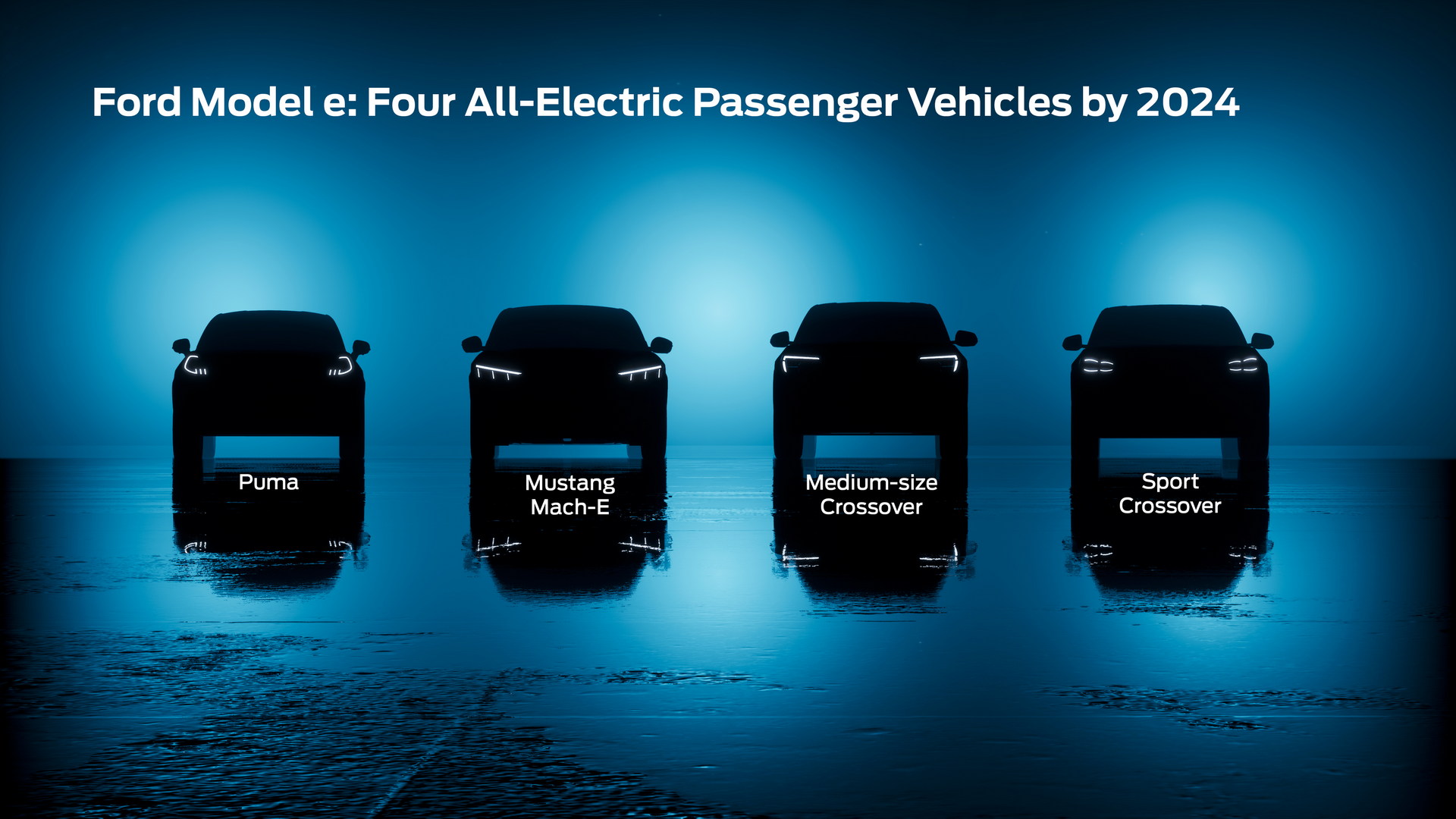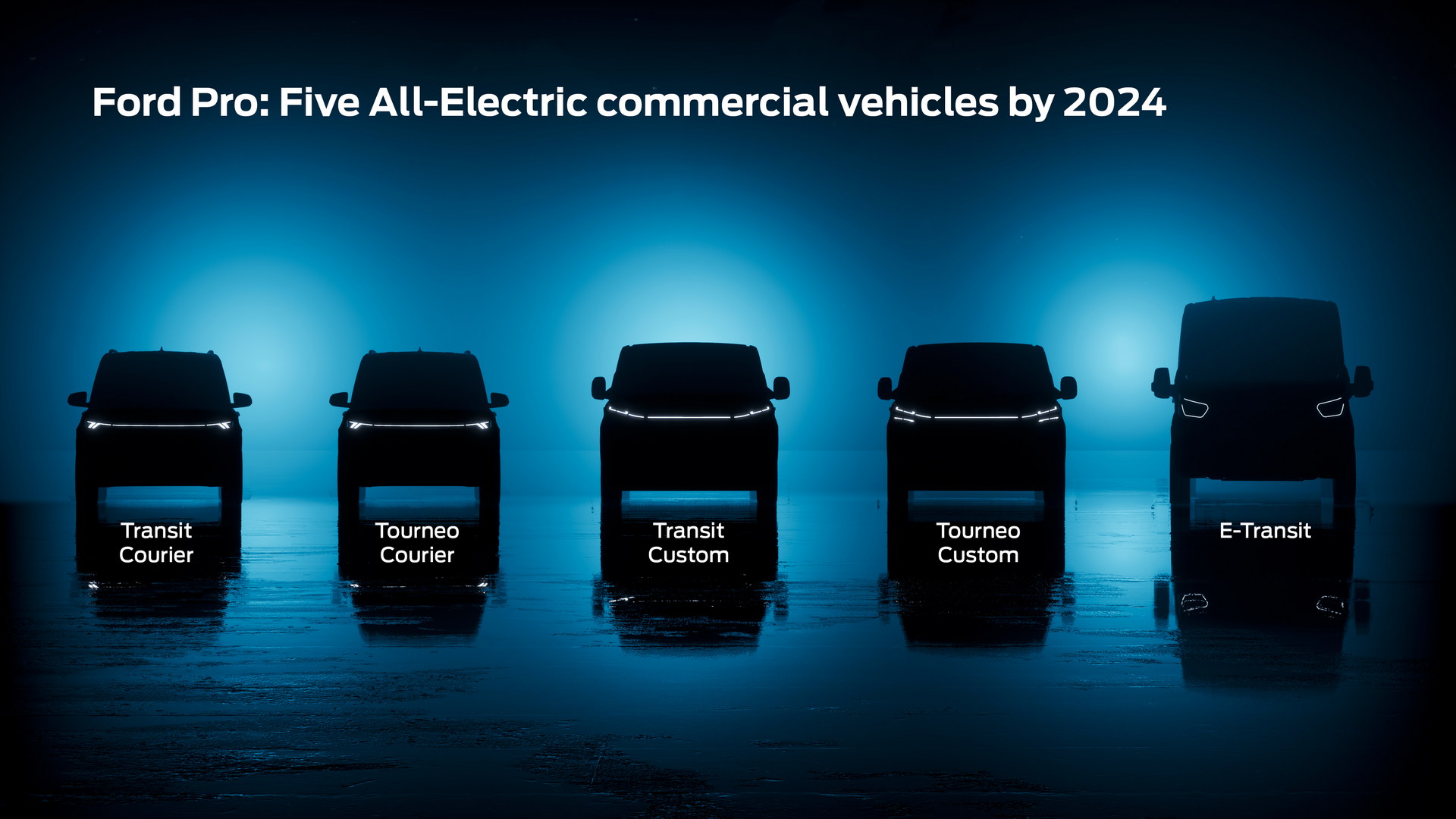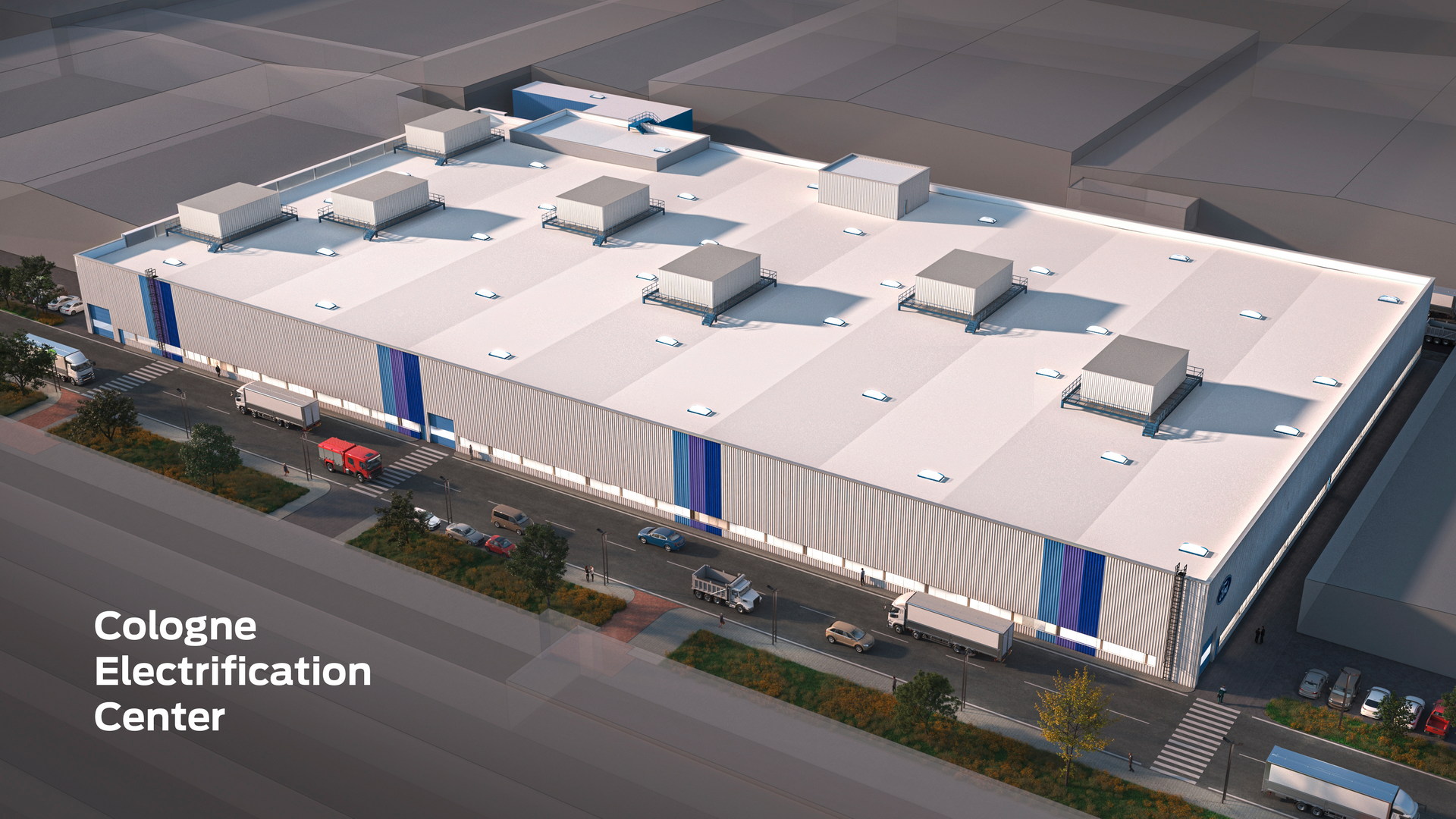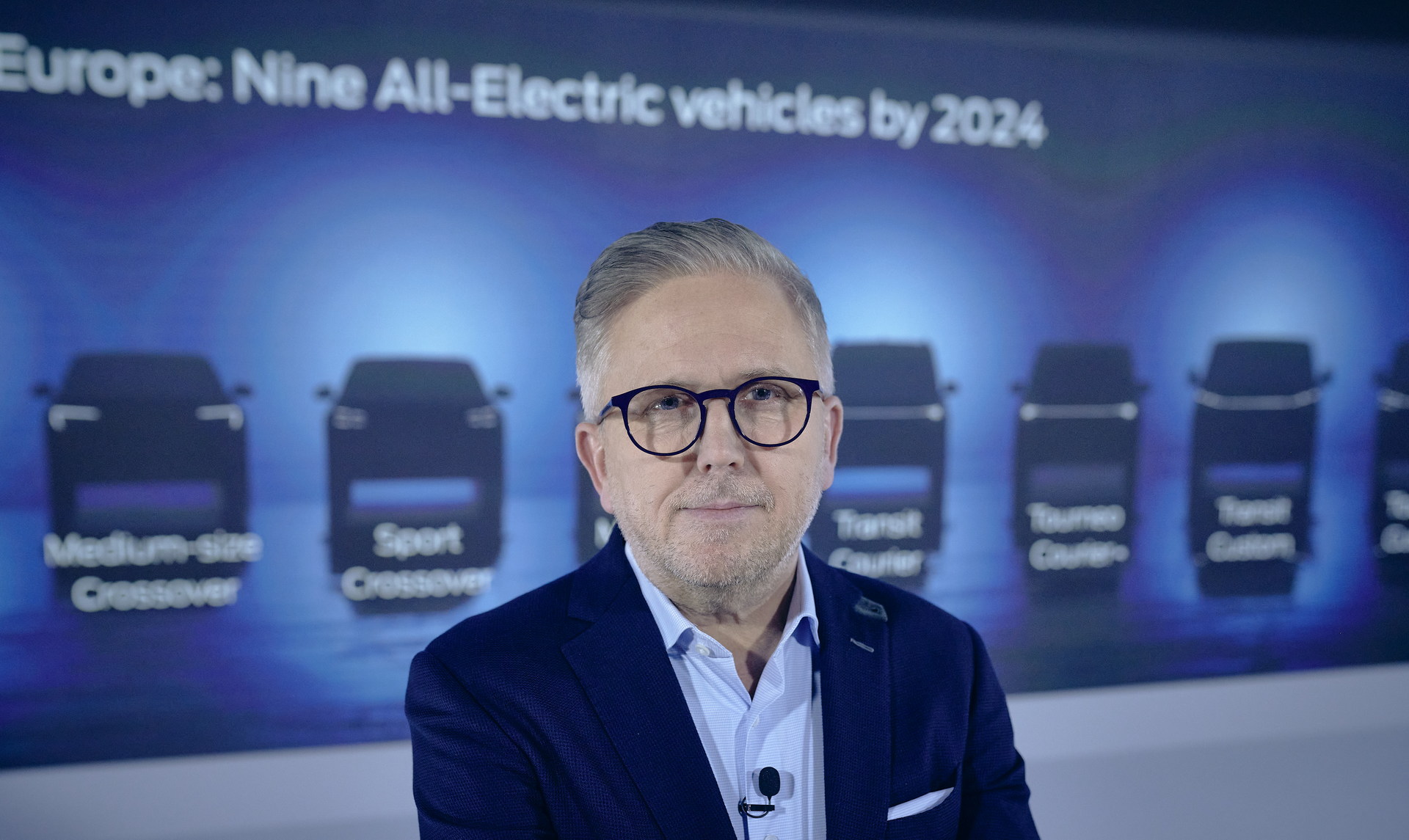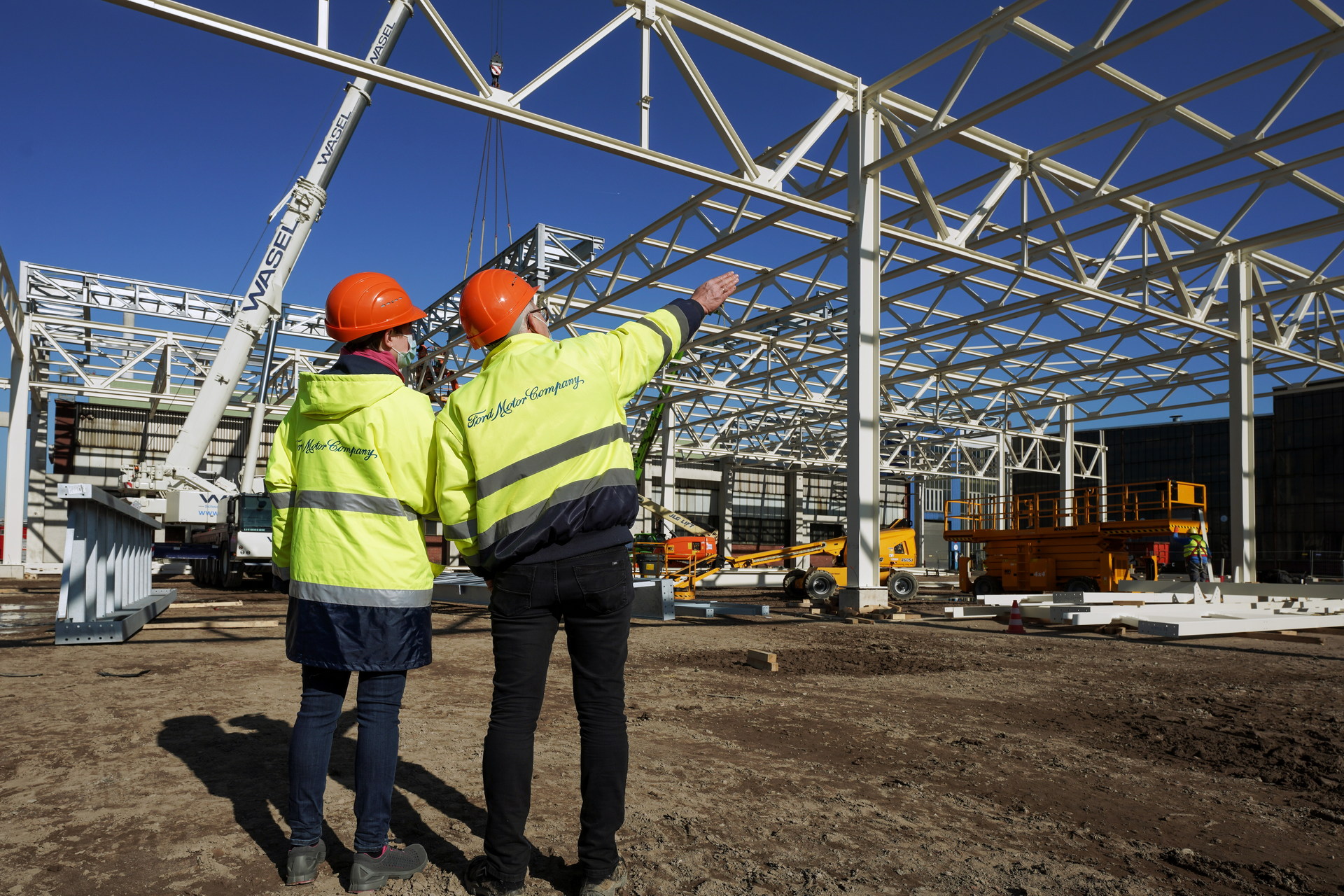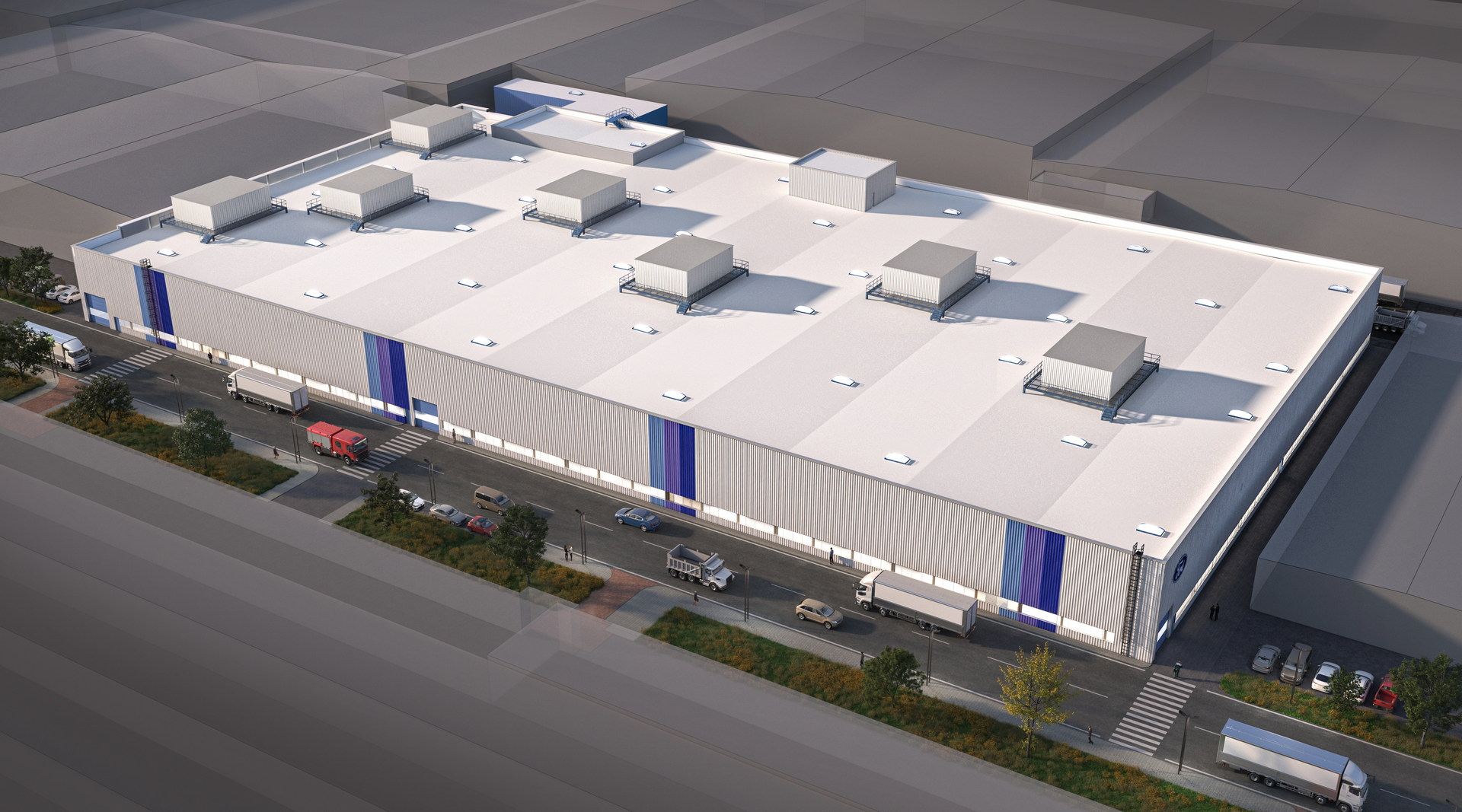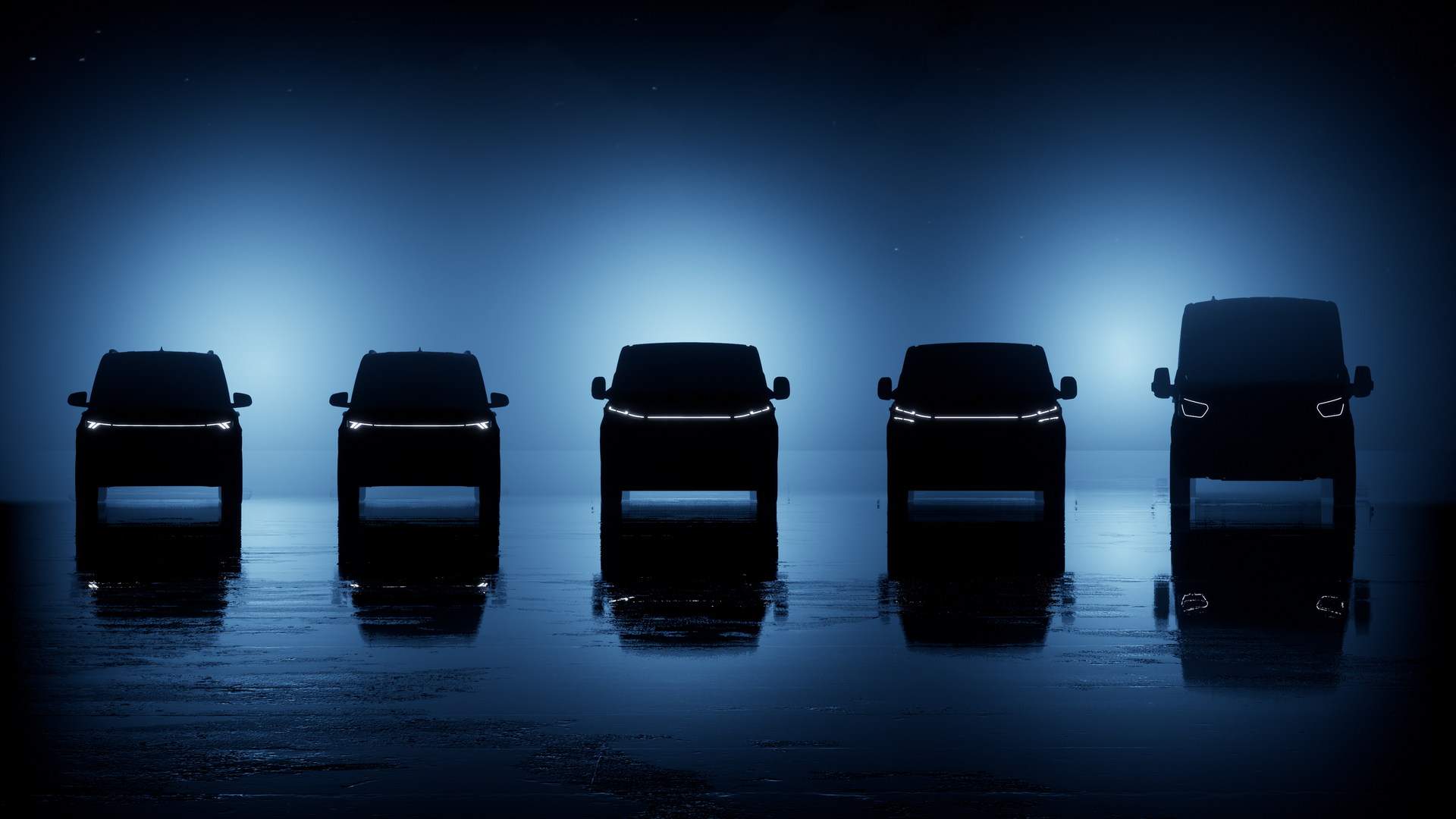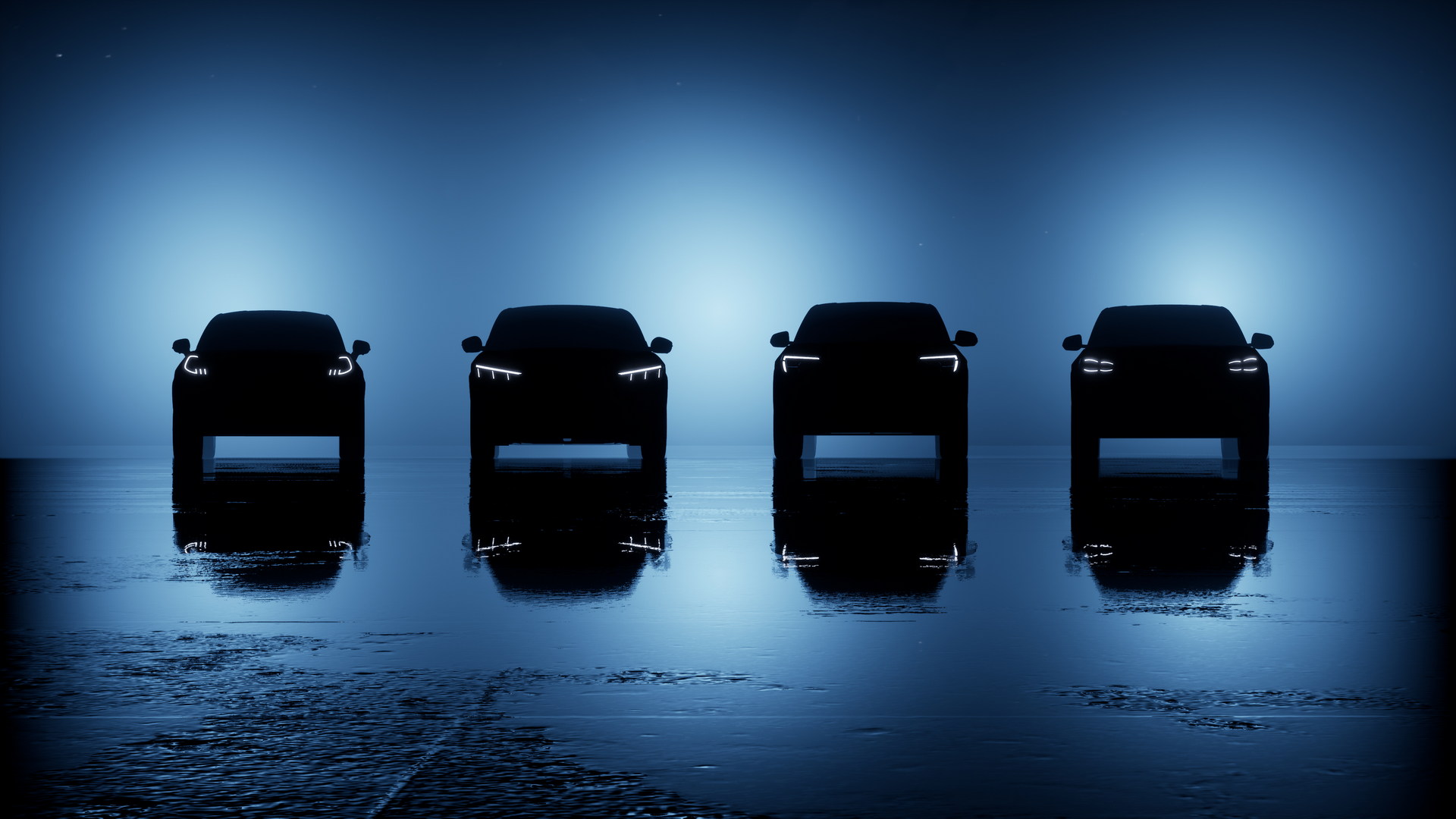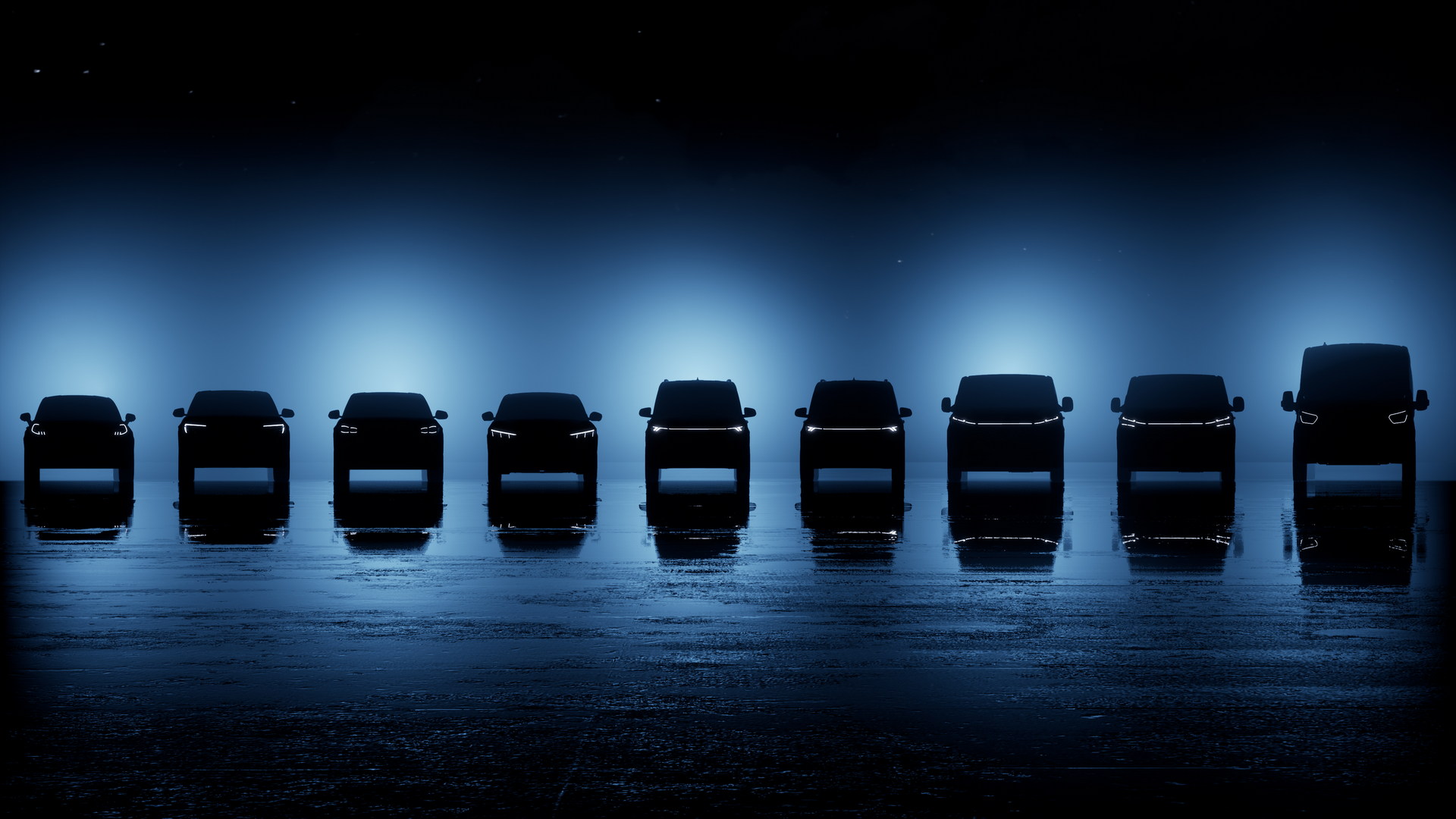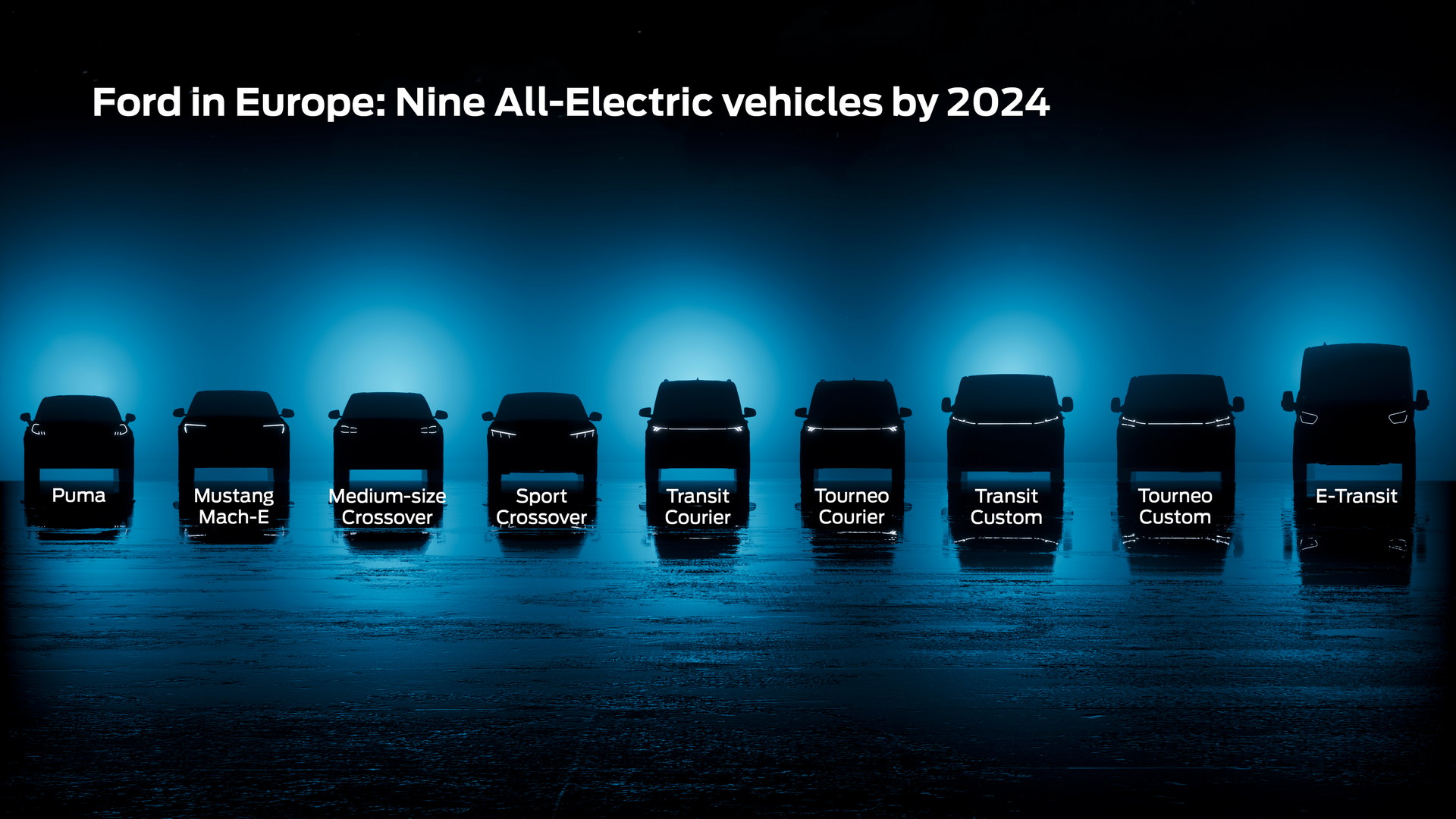Ford announced the expansion of its EV range in Europe with the addition of three new crossovers and four new commercial vehicles by 2024, with the goal of exceeding 600,000 annual EV sales in the Old Continent and 2 million EV sales globally by 2026. The automaker has also pledged to achieve carbon neutrality in Europe across its vehicle range, facilities, logistics, and suppliers by 2035.
Among the “seven, all-electric, fully-connected passenger vehicles and vans” appearing on the tease with dark silhouettes and LED graphics, we can see an electric version of the Ford Puma, a new medium-size crossover, and a sport crossover that is different from the existing Mustang Mach-E. If previous reports turn out to be true, the latter two could be based on VW Group’s MEB platform.
Ford says that the all-new five-seater medium-size crossover will debut in 2022 with a 500 km (311 miles) range. Its production will commence in 2023 at the Ford Cologne Electrification Center in Germany, where the sports crossover will also be built starting from 2024. As for the electric variant of the Puma, it will be produced in Craiova, Romania starting from 2024 alongside its ICE-powered sibling.
See Also: Ford Mustang Convertible California Special Crosses The Atlantic, Is Now Available In Europe
On the LCV front, Ford will launch the electric variants of the new generation Transit / Tourneo Custom in 2023, and the smaller Transit / Tourneo Courier in 2024 (debuting a year after the ICE-powered models), expanding the range next to the existing e-Transit flagship. Note that the new Transit/Tourneo Connect, which is mechanically related to the VW Caddy, is missing from the chart which means it won’t be getting an EV variant soon.
Investment in new and existing plants for EV production
Ford wants to produce 1.2 million electric vehicles throughout a period of six years at the Cologne plant in Germany, after investing $2 billion – up from the $1 billion investment announced last year. The medium-sized crossover will be the first EV coming out of the Cologne Electrification Center in 2023, while a new battery assembly facility will start operations in 2024.
The Craiova plant in Romania will also play a significant role in EV production, with Ford Otosan JV – a joint venture between Ford Motor Company and Koç Holding – assuming ownership of the manufacturing facilities and business in Romania. Among the EVs that will be produced will be the electric variants of the Transit/Tourneo Courier and the Puma starting from 2024.
Read Also: Ford To Become An All-Electric Brand In Europe By 2030
Ford has also signed a “non-binding memorandum of understanding” with companies SK On CO., Ltd and Koç Holding, with the support of the Turkish government, to build an LCV battery production site in Ankara, Turkey. Starting from mid-decade, the new battery plant will produce “high Nickel NMC cells for assembly into battery array modules” with a planned annual capacity of 30-45 Gigawatt hours making it one of the largest in the wider region.
As part of the EV offensive, Ford wants to increase the EBIT margin in Europe to 6 percent by 2026, and globally to 10 percent by 2026. The news comes soon after the announcement of a new global business unit called “Ford Model e”, which is “focused on the design, production, and distribution of electric and connected vehicles”.








